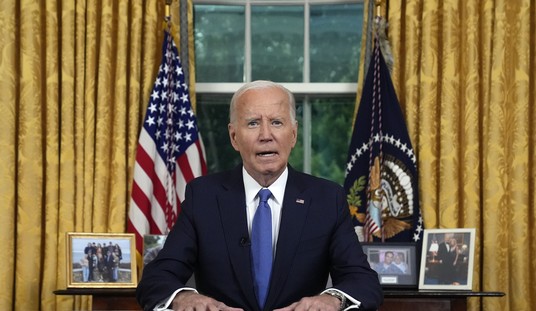What do the Kyoto Protocol and the horse-and-buggy have in common? They were both outstripped by innovation, and their obsoletion helped to better the environment, all contrary to popular belief.
As any sane environmentally-conscious person understands (not to be confused with the politically-connoted, green-brainwashed "environmentalist"), poor nations are more often the culprits of environmental degradation than wealthy nations. Environmentalists love to deride the wealthy for their greedy, thoughtless, natural-resource-gobbling ways, and insist that we should all live more simply. But in undeveloped nations, people often dump refuse, burn garbage, and must use delapidated, outdated, inefficient infrastructures, all while struggling beneath great poverty. Because of insufficient property rights, people burn down great swaths of forests and dump waste into water sources. People only have the leisure to worry about the environment when they do not have to worry about basic subsistence. If we all rewound back to the idyllic peasant ways of yore, the world would be a much more filthy, unhappy, disease-ridden place.
Today, the United Nations will wrap up two weeks of negotiations in an effort to extend the climate change-combating Kyoto Protocol beyond 2012. It looks as if the Kyoto treaty will not live to see 2013, mainly due to lack of interest:
Recommended
Developing nations accused rich nations of reneging on promises to extend Kyoto, which now binds almost 40 nations to cut emissions until 2012. Kyoto's future has become the main focus after a U.N. summit in 2009 failed to agree a new treaty.
"Progress in Bonn has been hampered by parties with the biggest historical responsibility for emissions," the Alliance of Small Island States said of rich nations that have burned carbon-emitting fossil fuels since the 18th century Industrial Revolution.
The alliance says its members are on the front line of climate change, including more powerful storms, droughts, floods and rising sea levels. Developing nations say that the rich must take the lead and extend Kyoto to unlock action by the poor.
Japan, Canada and Russia have said they will not make cuts in an extended Kyoto and are instead demanding a new global deal with greenhouse gas curbs to be observed by all, including big emerging nations led by China and India.
And Kyoto backers led by the European Union say they are unwilling to go it alone and will extend the pact only if all major emitters sign up for curbs.
The United States did not sign the Kyoto Protocol back in 1997, and Washington has no plans to do so now, thank goodness. Businesses have their own incentives to constantly innovate, invent, increase efficiency, and operate more cleanly - no government necessary. Imposing arbitrary, top-down rules about emissions is never a good idea, especially when the global economy is already facing so many other "headwinds", to borrow President Obama's oh-so-charming euphemism, and seeing as how climate change science is so questionable. When global economies can grow, populations' standards-of-living improve, and people then have the opportunity to care about their environment, as well as being healthier, happier, more productive people in general - so quit hating on prosperity, greenies!

























Join the conversation as a VIP Member